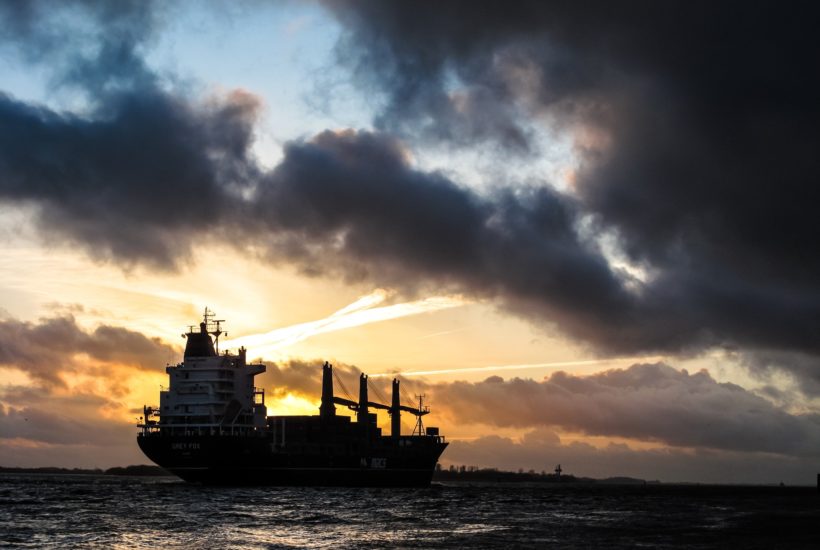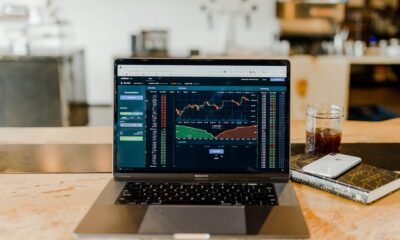Business
Oil prices plummet to 17-year lows
The new coronavirus outbreak took a toll on the world’s economies, with a direct effect on oil demand. In addition, Saudi Arabia’s intent to flood the market with crude oil will drag down prices even more. As a consequence, IEA and OPEC issued warnings that oil and gas exporting developing economies may face a drop in income of 50%-85% by 2020 if the current market situation will persist.

The prospect of global economic recession and its effect on oil demand as a result of the impact of the coronavirus epidemic worldwide, coupled with the price war between Saudi Arabia and Russia, two of the world’s largest oil producers, continues to take its toll on oil prices, which this Wednesday, March 18th, fell to levels not seen since 2003.
Check out the latest business headlines and last-minute analysis of the Oil market with our companion app Born2Invest, the best online news aggregator. Find all news and current affairs about oil. Download our app from Google Play and stay informed with financial developments from around the world.
The oil’s decline in prices at historic levels
In the case of Brent oil, the reference for Europe, the price of the barrel fell to $26.65, more than 7% below the closing price on Tuesday, March 17th, which dragged its price to a 17-year low. So far this year, Brent crude has accumulated a decline of 59%.
The “black gold” is suffering great falls in recent weeks. That’s the result of investors’ fears of a drastic drop in demand, due to restrictions on movement, flights and productive and business activities as a consequence of the coronavirus pandemic and the price war initiated by Saudi Arabia.
For its part, the West Texas Intermediate oil price, the reference price for the United States, fell by 12% to $23.60, thus registering its lowest price since June 2002.
The price of OPEC oil fell by 10.28% on Monday, March 16th, when it was sold at $30.63 a barrel, its lowest value in more than four years, the Vienna-based oil group said Tuesday, March 17th.
The barrel used as a reference by the Organization of Petroleum Exporting Countries (OPEC) has thus depreciated by 56.78% with respect to the peak value reached on 6 January, of $70.8.
Some of the main banks have revised downwards their forecast for the price of crude, including Goldman Sachs, which this Tuesday, March 17th, warned that in the case that the confrontation between Saudi Arabia and Russia persists, the Brent barrel could fall to $20.
Saudi Arabia has unleashed an aggressive price campaign in recent weeks, in which it has announced its intention to ‘flood’ the market with crude oil. It is planning to raise Aramco’s production capacity to 13 million barrels a day and substantially lowering the reference prices for marketing its oil.
Analysts estimate a fall in income of between 50% and 85%
The coronavirus epidemic will cause oil consumption growth in 2020 to be 19% less than calculated so far, OPEC said in a report that warns that the impact of this crisis has added uncertainty to the progress of the global economy. “The main reason behind this review of demand growth and, therefore, of OPEC’s demand for oil, is the outbreak of the coronavirus and its expected impact on the demand for oil in China and, by extension, the world,” the energy group said in its market analysis, published on Wednesday, March 18th, in Vienna.
Investors’ concerns were heightened, Monday, March 16th, after reports that Chinese industrial production plunged 13.5% in the first two months of the year.
The new estimate by the Organization of Petroleum Exporting Countries (OPEC) puts world oil consumption this year at 100.73 million barrels per day (mbd), 230,000 barrels per day less than the estimate made last month, before the outbreak of the epidemic.
IEA and OPEC have warned that some oil and gas exporting developing economies may face a drop in income of 50%-85% by 2020 if current market conditions persist, with economic and social consequences for these countries.
__
(Featured image by Free-Photos via Pixabay)
DISCLAIMER: This article was written by a third party contributor and does not reflect the opinion of Born2Invest, its management, staff or its associates. Please review our disclaimer for more information.
This article may include forward-looking statements. These forward-looking statements generally are identified by the words “believe,” “project,” “estimate,” “become,” “plan,” “will,” and similar expressions. These forward-looking statements involve known and unknown risks as well as uncertainties, including those discussed in the following cautionary statements and elsewhere in this article and on this site. Although the Company may believe that its expectations are based on reasonable assumptions, the actual results that the Company may achieve may differ materially from any forward-looking statements, which reflect the opinions of the management of the Company only as of the date hereof. Additionally, please make sure to read these important disclosures.
First published in vozpopuli, a third-party contributor translated and adapted the article from the original. In case of discrepancy, the original will prevail.
Although we made reasonable efforts to provide accurate translations, some parts may be incorrect. Born2Invest assumes no responsibility for errors, omissions or ambiguities in the translations provided on this website. Any person or entity relying on translated content does so at their own risk. Born2Invest is not responsible for losses caused by such reliance on the accuracy or reliability of translated information. If you wish to report an error or inaccuracy in the translation, we encourage you to contact us.

-

 Crypto7 days ago
Crypto7 days agoEthereum Pushes AI Integration With ERC-8004 and Vision for Autonomous Agents
-

 Biotech2 weeks ago
Biotech2 weeks agoByBug Turns Insect Larvae into Low-Cost Biofactories for Animal Health
-

 Business2 days ago
Business2 days agoDow Jones Near Record Highs Amid Bullish Momentum and Bearish Long-Term Fears
-

 Business1 week ago
Business1 week agoDow Jones Breaks 50,000 as Bull Market Surges Amid Caution and Volatility

























